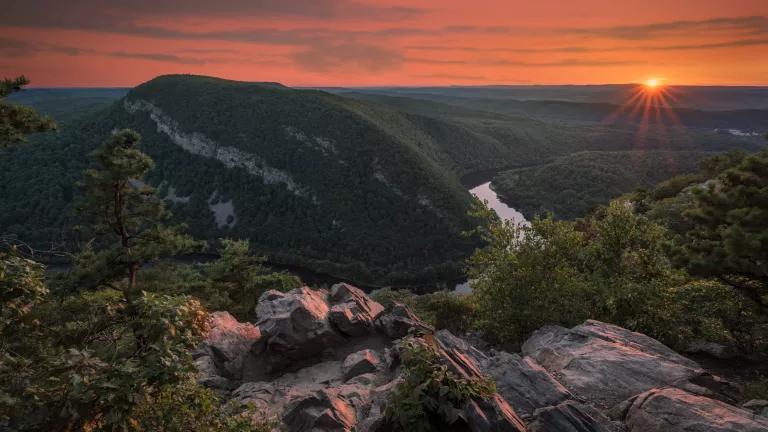Goodbye, Yucca. It’s Now Time for Consent for Nuclear Waste.

In a Senate hearing yesterday, Former Michigan Governor Jennifer Granholm, President Biden’s nominee to head the Department of Energy, established that the new administration won’t entertain putting nuclear waste at Yucca Mountain in Nevada and instead will work to develop a consent-based approach. This is incredibly reassuring to the residents of Nevada, and, in fact, all of us who have a huge interest in coming up with a workable solution to deep geologic disposal of this radioactive waste that will remain a threat to humanity for thousands of years to come.
In questions from the Senate Energy & Natural Resources Committee at her nomination hearing, Granholm responded plainly and forthrightly that the Biden administration will return precisely to the “consent based” path laid out by the bipartisan 2012 Blue Ribbon Commission on America's Nuclear Future. This is terrific to hear and NRDC stands ready to work with the Administration and Congress on just this matter.
Indeed, we submit that it’s long past time for a significant course correction, one that can put both the failed repository program and cleanup at DOE's Cold War nuclear weapons Hanford site along the Columbia River—that Senator Ron Wyden wisely and wryly noted has been “the longest running battle since the Trojan War”—on track for cleanup results that are scientifically defensible, publicly accountable, and complete. Congress must finally end the Atomic Energy Act’s, and thus DOE’s, exemptions from environmental law for nuclear waste. We have testified and written about this matter here, and we take great comfort that the federal government has finally moved past the unworkable and inadequate proposed Yucca Mountain repository. We look forward to working with the administration and the Congress on finally solving this Rubik’s Cube of environmental challenges.
Unfortunately, there was not a great deal of discussion at yesterday’s hearing about the single largest portion of the DOE budget, the National Nuclear Security Administration. It was certainly acknowledged it will be a substantial area of focus, and we look forward to future hearings on the topic—but we stress that the dangers posed by nuclear weapons remain extreme, with urgent work ahead in U.S.-Russian strategic arms control, and engagement with Iran and North Korea. The DOE with its national lab complex has a central role to play in repairing the architecture of nuclear arms control and nonproliferation that was neglected and damaged during the Trump years.
One other nuclear matter merits a mention, and that is the misguided Strategic Uranium Reserve. There are important federal actions that should be undertaken with respect to uranium recovery, but they are not expending huge amounts of government resources in a fruitless attempt to save a polluting, environmentally damaging industry with a long legacy of failure and harm to environmental justice communities that has both yet to be cleaned up or to be protectively regulated. Rather, the Biden Administration should focus on reviving and then finalizing the Obama era Environmental Protection Agency’s protective set of uranium recovery regulations that the Trump Administration unwisely shelved (which is obviously out of Secretary Designate Granholm’s purview); researching how to address the groundwater impacts of uranium recovery; and finally addressing the massive cleanup and environmental injustices associated with the domestic uranium industry’s legacy.
Any and all of these would cost substantially less and be wiser actions than implementing an unnecessary strategic uranium reserve, creating an artificially rigged uranium market designed to shelter domestic producers (which are generally owned by foreign companies) from competition, and further expanding the already dramatic toll on Western water resources, landscapes, and communities.
It was an impressive performance by Secretary Designate Granholm and we look forward to her swift confirmation and her getting down to the business of working with this vast federal department on solving the profound challenges facing the country’s energy, security and environmental future.
(For more on the Energy Department and its clean-energy and climate priorities, please see this blog from my colleague Arjun Krishnaswami.)




